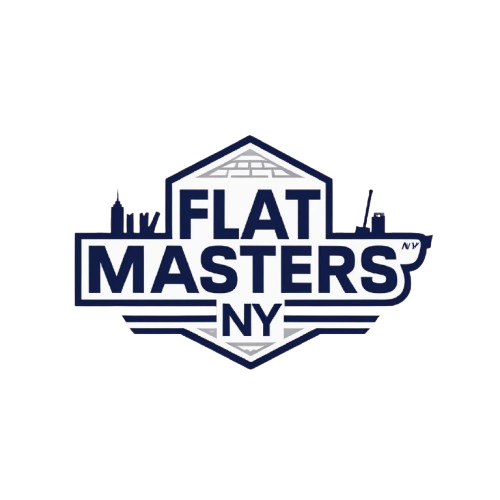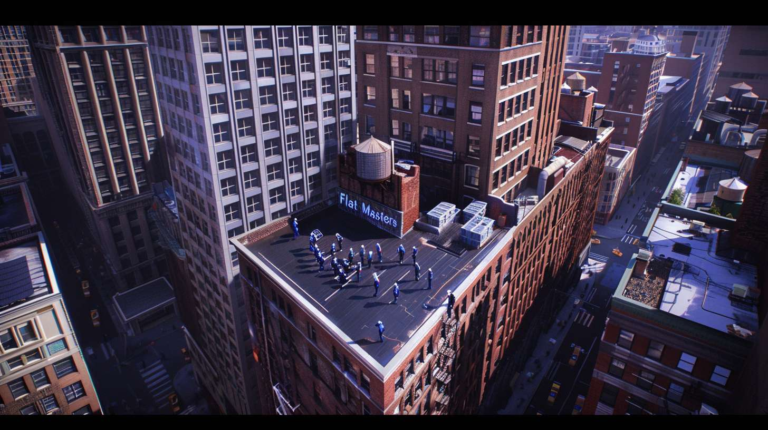Professional Flat Roof Deck Drainage Solutions Near You
Look, I've been installing flat roof deck drainage systems across Queens for over two decades, and I can tell you right now - most deck drainage failures happen because contractors don't understand the unique challenges of our climate here. The salt air from LaGuardia and JFK, combined with our freeze-thaw cycles, absolutely destroys inadequate drainage systems within 3-4 years.
Here's the thing about deck-specific drainage that most people don't realize: your standard roof drain just won't cut it when you're dealing with outdoor living spaces. We're talking about areas where people walk, where furniture sits, where water pools differently than on a regular commercial flat roof.
Why Deck Drainage is Different From Regular Roof Drainage
Last month I was up on a roof deck in Astoria - beautiful space, probably cost the homeowner $40K to build - and the drainage was completely shot. Water was backing up against the building envelope, seeping under the deck boards, creating ice dams in winter. The previous contractor treated it like any old flat roof. Big mistake.
Flat roof deck drainage requires understanding pedestrian traffic patterns, furniture placement, and how people actually use these spaces. You can't just throw in a couple of standard roof drains and call it good. I learned this the hard way back in 2003 on a job in Forest Hills.
The load requirements are different too. We're not just dealing with snow loads and wind uplift - we're talking about concentrated loads from patio furniture, hot tubs, planters. Your drainage system needs to handle all of this without compromising the waterproof membrane.
Common Drainage Problems We See in Queens
Every week my crew deals with the same issues:
- Inadequate slope to drains (should be minimum 1/4" per foot)
- Drain grates that aren't rated for pedestrian traffic
- No overflow drainage system
- Poor integration with railings and deck furniture
- Membrane damage around drain penetrations
But here's what really gets me frustrated - contractors who don't account for our local weather. We get heavy downpours in summer, then everything freezes solid for months. Your deck-specific drainage system needs to handle both scenarios perfectly, or you're looking at major repairs every few years.
Proper Deck Drainage Design
When we design a drainage system for a roof deck, we start with the membrane system. Usually we're working with modified bitumen or EPDM, though I've been using more TPO lately for deck applications. The key is creating positive drainage while maintaining a surface that's safe and comfortable for pedestrians.
We typically install drains every 600-800 square feet, depending on the roof configuration and local rainfall data. For Queens, we use the 100-year storm data - about 4.5 inches per hour maximum intensity. Most contractors cheap out and design for the 10-year storm. Don't let them.
The slope is critical. We create slope using tapered insulation or lightweight concrete - never just rely on the structural deck alone. I can't tell you how many "flat" decks I've seen that actually slope back toward the building because the contractor assumed the structure would provide adequate drainage.
Drainage Components That Actually Work
After installing hundreds of these systems, here's what I specify:
Primary drains: We use Zurn or Watts commercial-grade deck drains with cast iron or stainless steel grates. The grate needs to be rated for pedestrian traffic - minimum 300 pounds concentrated load. Plastic grates break, period.
Overflow system: This is where most contractors fail. You need secondary drainage - either through scuppers or additional drains - positioned 2 inches above the primary drain level. Building code requires it, and insurance companies are getting strict about it after all the flooding we've had.
Membrane integration: The most critical part. We use two-part clamping rings with butyl or EPDM gaskets. The membrane needs to be properly terminated and sealed - no shortcuts here. One small leak and your whole deck system fails.
Area drains work great for larger installations. We space them based on the deck layout and furniture placement. Nobody wants to step around drain grates when they're entertaining, so planning is everything.
Installation Process
So here's how we actually install flat roof deck drainage systems in Queens:
First, we verify the structural slope. If it's not adequate - and it usually isn't - we install tapered insulation or pour lightweight concrete. This is expensive but necessary. Expect $8-12 per square foot for proper slope correction.
Next comes the membrane system. We always use fully adhered systems for deck applications - no ballasted or mechanically attached membranes. The pedestrian traffic will destroy them. Installation takes 2-3 days for a typical residential deck, depending on complexity and weather.
Drain installation is where experience matters most. The penetration through the membrane is the most likely failure point. We use proper flashing techniques - multiple layers, proper overlaps, and adequate curing time for all sealants.
Finally, we install the deck surface system. This could be pavers, decking, or protective membrane systems. The key is maintaining access to drains for maintenance while creating a functional outdoor space.
Maintenance Requirements
Look, even the best drainage system needs maintenance. We recommend quarterly inspections and annual professional cleaning. In Queens, with all the tree debris and pollution, drains clog fast.
Your responsibilities as a property owner:
- Keep drain grates clear of debris
- Check for standing water after storms
- Have the system professionally cleaned annually
- Don't let ice build up around drains in winter
The professional maintenance involves removing grates, clearing debris from the drain bodies, and checking membrane condition around penetrations. We charge $150-250 per visit, depending on system complexity.
Cost Considerations
Here's what deck drainage actually costs in Queens:
Basic drain installation: $400-650 per drain, including membrane work
Complete drainage system: $15-25 per square foot for new construction
Retrofit drainage: $25-40 per square foot, depending on existing conditions
Overflow system addition: $200-350 per scupper or overflow drain
These numbers include proper membrane integration and code-compliant installation. Cheaper contractors exist, but you'll pay more in repairs later. I've redone too many cheap drainage jobs to count.
When to Call Flat Masters NY
If you're seeing water pooling on your deck, ice dams forming in winter, or water stains inside your building, your drainage system has failed. Don't wait - membrane damage gets expensive fast.
We handle everything from simple drain replacements to complete system redesigns. My crew knows Queens weather, local building codes, and what actually works long-term. After 20+ years and over 1,500 flat roof projects in Queens, we've pretty much seen it all.
Call us at (917) 994-7618 for a free drainage assessment. We'll tell you exactly what's wrong and what it'll cost to fix properly. No games, no surprises - just honest roofing expertise from contractors who live and work right here in Queens.


